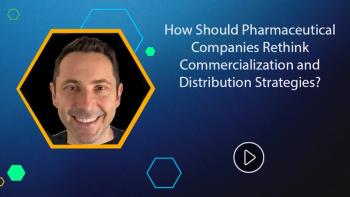
What the Age of Multi-Localism Means for Pharma
New realities are transforming the global environment and upending a business model based on the presumption of ever more connected markets. Paul A. Laudicina asks, What does this new age mean for pharma?
Pharmaceutical companies face a dramatically changing global environment. In recent decades, the conventional wisdom was that globalization was an inexorable force creating an ever more interconnected world. Business strategies were therefore focused on achieving growth through economies of scale, efficiency enhancements, and globally integrated value chains. Now, new realities are transforming the global environment and upending a business model based on the presumption of ever more connected markets. I call this new era the “age of multi-localism.”
The
So what does this new age of multi-localism mean for pharmaceutical companies? There are two primary implications.
The first is growing pressures to indigenize production. Governments around the world are seeking to accelerate the modernization and diversification of their economies and move up the value chain. Their current method of choice is industrial policy-that is, policies directed at affecting the economic structure of the economy. In recent years, the scope of these policies has expanded from traditional import-substitution models to support for specific sectors and the promotion of other economic and social objectives. These can include job creation, technology transfers, and public health outcomes.
While many of these modern industrial policies are directed at the technology sector, pharmaceutical companies are by no means immune to these pressures. Governments may seek to develop local capabilities in pharmaceutical R&D and production to ensure consistent access to the medicines that their citizens need. They may also use industrial policies to orchestrate the transfer of knowledge from multinational companies to local firms in order to diversify the local economy and move up the pharmaceutical value chain.
Brazil is a case in point. The Brazilian government identified pharmaceuticals as a key sector when it relaunched an industrial policy agenda in 2003. Five years later, the Ministry of Health launched the Productive Development Partnerships (PDP) program to foster cooperation between the public and private sectors-and ultimately transfer pharmaceutical knowledge to Brazilian firms. This policy provides clear benefits for the Ministry of Health and local players in terms of building up the domestic pharmaceutical industry, saving on R&D costs, and ensuring needed medicines make it to market. While the outcome is more mixed for major international pharmaceutical companies, many of them have engaged in Brazil’s PDP program because it fosters their access to the huge Brazilian market.
Although Brazil’s PDP was implemented before the age of multi-localism took hold, it is indicative of the types of policies that pharmaceutical companies can now anticipate in other markets around the world. For instance, Beijing announced earlier this year that foreign institutions and scientists must seek government approval to transfer scientific data outside China. This new regulation is motivated in part by a desire to develop domestic scientific capabilities, but it will impose costs on pharmaceutical companies operating R&D centers within China. Other countries may follow suit in the coming months and years.
The second implication of the age of multi-localism for pharmaceutical companies is the increasing importance of stakeholder relations. The relationship between the private sector and society is changing as consumers, communities, and investors have higher expectations for the value that companies should provide. The share of environmental, social, and governance (ESG) assets under management has been growing as a share of total global funds, for instance. Investors are also using their positions to push for what they see as positive corporate change with broader societal impact, including improving environmental sustainability and addressing the gender pay gap.
As
But simple image enhancement efforts are not likely to be sufficient in an age of multi-localism. Communities, employees, customers, investors, and governments expect more from companies in this transformed environment, and they expect companies to be authentic in their pursuit of better stakeholder engagement. Pharmaceutical executives therefore need to develop what I call “sensory perception.” This is the practice of being continuously aware of local conditions and how they are shifting, recognizing the company’s role in shaping and reacting to those conditions, and using that knowledge to develop business insights and strategies. By doing so, pharmaceutical companies can engage with all of their stakeholders to promote long-term value creation-both for the company and for the communities in which they operate. This will be crucial for sustainable profitability and growth in the age of multi-localism.
Paul A. Laudicina is the chairman of the Global Business Policy Council, Partner and Chairman Emeritus of
Newsletter
Lead with insight with the Pharmaceutical Executive newsletter, featuring strategic analysis, leadership trends, and market intelligence for biopharma decision-makers.




